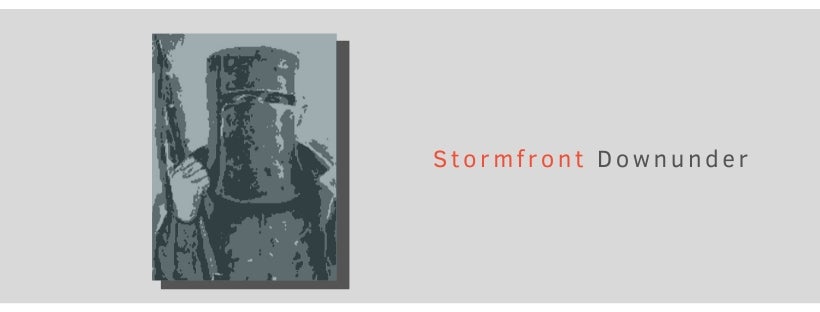
Factsheet: Stormfront Downunder
IMPACT: Stormfront Downunder is a sub-forum of the global white supremacist online community Stormfront.org, which deals with “issues and pro-white activism for white nationalists in Australia and New Zealand.”
Stormfront.org was launched in 1995 and has since been maintained by its creator and owner, Don Black, a former Ku Klux Klan member. According to the Southern Poverty Law Center (SPLC), Stormfront is one of the most popular and successful online communities of the global radical-right. The SPLC, which considers Stormfront a hate group, notes “one of the secrets to Stormfront’s success is its focus on community building.” The forum allows individuals to “post articles, engage in discussions, and share news of upcoming racist events.” Additionally, the establishment of an international network of local branches and sub-forums including in Canada, Europe, South Africa, and Latin America, as well as Australia and New Zealand, has contributed to Stormfront’s success.
Stormfront.org is structured around themes of interest for members, such as ideology and philosophy, culture and traditions, revisionism, science, technology and race, privacy, business and finance, homemaking, education and home-schooling, youth issues, etc. It has a strong pro-white supremacy focus.
The Stormfront Downunder sub-forum is organized into sections such as “General Discussion,” “Politics and Activism,” “Newslinks,” and “Announcements,” each of which contains ‘threads’ or moderated discussions opened by registered members. A 2014 article in the New Matilda found that Stormfront Downunder, along with other far-right groups, reflected a “broader cultural and social shift … from determined anti-Semitism to fear and loathing of Muslims as organizing principles.”
A 2019 journal article, which analyzed communication among Stormfront members, found that the 2005 Cronulla race riots in Sydney marked a shift in the group’s collective identity. The analysis of communication on the forum over 14 years suggests that “the riots played a key role in unifying and giving purpose to supporters of White supremacism in Australia by helping them clarify and crystallize their collective beliefs in order to increase their reach within the broader community.” After the riots, “group discussions more directly refer to Muslim Australians. Specific references to the riots were made to build an argument for exclusion based on cultural incompatibilities.” The comments posted during the riots and in their aftermath make it apparent that Stormfront Downunder functioned as a communication platform where members from Stormfront’s other international branches expressed their support for the violent actions directed at Australian Muslims.
The increased anti-Muslim focus in Stormfront Downunder is not unique to this particular community. Rather it reflects a broader trend in white supremacist groups in the United States and other parts of the world.
Historically, the online community Stormfront Downunder has been a subforum that was created to provide a base for communication for supporters of white supremacism mainly drawn from Australia and New Zealand. The subforum connected them with fellow supporters from around the world. The platform brings together those sharing an ideology drawn on Islamophobic and anti-immigration attitudes.
For members willing to engage in offline activism, the sub-forum provides links to several organizations endorsed by Stormfront Downunder including: the far-right Australia First Party, the Nationalist Alternative (a Melbourne-based organization self-described as a political think tank and activist group driven by an ideology centered on the “welfare and needs of the Australian people”), Right-Wing Resistance NZ (a Christchurch-based far-right, white nationalist organization reportedly losing support after the deadly 2019 mosque attacks), and Women for Aryan Unity (a global organization of white supremacist women with branches in Australia and around the world).
—
This factsheet is published in collaboration between the Bridge Initiative and researchers at the Challenging Racism Project at Western Sydney University. More information about this project can be found here.
Updated November 14, 2019

 Search
Search